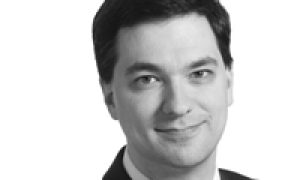Over the next two decades, Social Security and Medicare will add 77 million retiring baby boomers to their benefit rolls. The cost far exceeds what the economy and taxpayers can deliver. Getting a handle on these costs while preserving adequate retirement benefits is the largest economic challenge of our time.
Demographics drive this crisis, as fewer workers are being forced to support more retirees. In 1950, there were 16 taxpayers supporting each retiree. Today, the figure is 3.3. By 2030, there will be only two workers per retiree. A married couple will support themselves, their children -- and their very own retiree.
Overall, spending on Social Security, Medicare and Medicaid is projected to leap from 8.4 percent of GDP this year to 18.9 percent in 2050, an increase equal to $11,500 per household. To pay for these costs, the nation faces several painful options:
* Raise taxes every year until they are 60 percent higher than today.
* Eliminate every other government program by 2045.
* Borrow the money, meaning the economy would likely fall into a vicious circle of escalating federal debt and interest rates.
There is a fourth option: Modernize Social Security and Medicare. Social Security personal accounts may help workers get higher returns than the government can provide. Medicare reforms increasing consumer choice and competition may hold down costs.
The most obvious reform is to repeal the unaffordable Medicare drug entitlement and instead help just low-income seniors.
This problem will not cure itself. Each year that America delays fundamental Social Security and Medicare reform, the more expensive and painful the inevitable reforms will be.
Brian Riedl is Grover M. Hermann Fellow in Federal Budgetary Affairs in the Thomas A. Roe Institute for Economic Policy Studies at The Heritage Foundation.
First appeared in the Minn. Star-Tribune



